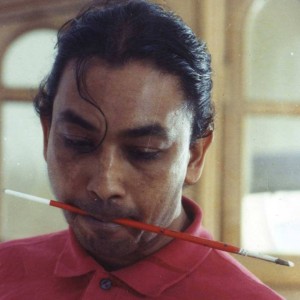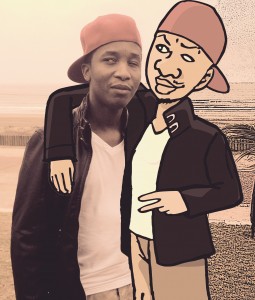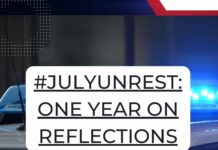The devastating attack on satirical french magazine Charlie Hebdo has provoked shock and anger across the world, and rekindled a debate about the boundaries of free expression, the right to offend, and Wednesday’s violent attempt to gag cartoonists. RA’EESA PATHER asked media workers in South Africa their thoughts.
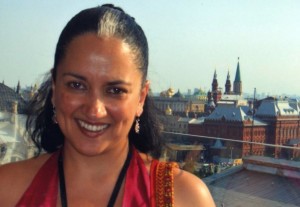
I couldn’t believe it when the first reports started coming through. Imagine being in your newsroom and gunmen come in and mow down the entire team, including the editor. It seems almost surreal. Views [for media to tone down] are a call for censorship: you hear it across the world, you hear it in South Africa. If you don’t give cartoonists an even higher right to free expression than journalists or the rest of society then you take away an essential part of an open, democratic society. Cartoonists are always first in the line of fire because they’re our modern-day jokers – they speak unpalatable truth well before they become apparent.
The right to offend, provoke and poke fun is a declining currency, not only in the world, but also in our country. The right to not be offended [has been placed] above free expression and I think it’s about time we turn that wheel in the direction of expression again.
Charlie Hebdo’s work has made me profoundly uncomfortable. There is a lot of it that I find deeply offensive, but isn’t that what free expression is about? Otherwise, you end up being like a North Korea, a Singapore, a Vietnam or an Iran, where countries have chosen not to have free expression. Publications like Charlie Hebdo must exist to push the boundaries of free expression.
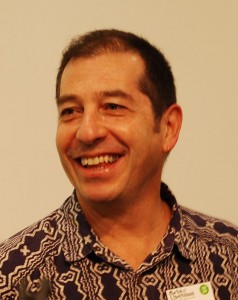
I’m completely devastated. The more the hours pass, I don’t feel the impact lessening at all – in fact it’s worsening when I think of the implications for cartoonists, satirists, media in general, and anyone who holds freedom of expression dear.
I feel it’s very childish when people turn the blame on the cartoonists and the publication. That really is a response I frown on, and that’s putting it mildly. This was a devastating, murderous, cowardly attack on people who are expressing points of view.
Charlie Hebdo has a long history of satirising political subjects and religious subjects, and obviously a lot has been made of their works around Islam. But they are not the reactionary, Islamophobic, right-wing people who are causing trouble for Islam, that is the French right-wing party [the National Front] and I hope very much that they won’t get some impetus from this terrible attack.
Charlie Hebdo is extremely irreverent and necessary in a secular society. We need to have people who will push the boundaries. That’s not to say that I liked everything that was done by their cartoonists – that’s not the issue. It’s not about whether one likes everything, it’s about the fact that they felt the freedom in that secular society to do things that were irreverent.
I have lived with threats all my life as a cartoonist, and it actually makes us more determined. I think cartoonists are going to go for the jugular now: people on all sides will become more determined.
The ironic thing is that the policeman who was shot in the head was also a Muslim. It just doesn’t make sense to kill a man in cold blood. I don’t think any religion will approve of that.
Charlie Hebdo attacked all religions: they attacked the Catholics more than they attacked Islam, actually. I did a cartoon once about the condom, but I used the church and I included a caption with “Hallowed be thy name, thy condom comeâ€. You see, a normal person won’t be able to use those kinds of things – they can’t do satire.
If you kill a cartoonist, you are going to kill satire. Imagine [if someone] showed up and shot Trevor Noah in the head? It’s the same thing.

I’d never heard of Charlie Hebdo or seen any of their cartoons before this but what is clear to me is that as journalists, as artists, they intended to offend and challenge meaning. That’s why it’s called art, and is a protected form of expression in our Constitution, as is the press, literature and so forth, as opposed to any other form of expression.
That the cartoons (about Islamic politics and power or Christian politics and power or Jewish politics and power, cartoons about state power, state politicians) caused enough harm to subjugate Muslims, Jews, Christians or politicians would be difficult to argue. Did they cause offence? Sure. But did Charlie Hebdo subjugate?
I personally went into shock when I heard about the incident and honestly think it’s had a chilling effect on me and many people out there – despite the media and politicians proclaiming otherwise.
![Thierry Cassuto ZANews [supplied]](http://www.thedailyvox.co.za/wp-content/uploads/2015/01/Thierry-Cassuto-ZANews-supplied-300x200.jpg)
I grew up with Charlie Hebdo. It accompanied me and my generation through the various phases of French counter-culture and anti-establishment movements through the ’70s and ’80s. Later it was harder for Charlie Hebdo to stay relevant, but they still did. They are a very unique voice that I still feel shaped me as I am today professionally in this world of media and satire – even though I found some of what they did distasteful.
I still hold their satirical code as one that is necessary to have and very unique to France – and very difficult to explain to non-French and non-French speakers.
There is absolutely no way freedom of expression should have boundaries. The only thing, as a society, we should be bound to is the confines of the law. Beyond that, freedom of expression should not have any limitations.
What I fear the most are the chilling effects acts of terror such as this can have, or things like governments suing cartoonists, or a piece of legislation that would punish satire or whistleblowing. In South Africa, and other democracies, we could feel that it’s not worth taking a stance because we could get into trouble.
Nathi Ngubane, cartoonist, The Daily Vox
As a young cartoonist, I would like to send my deepest condolences to the families of the cartoonists that were murdered in Paris. No man has the right to take the life of another, no matter how much one does not agree with what he or she draws. This has caused an international outcry, especially from prominent cartoonists around the world. The question I think we as cartoonists should ask ourselves is : do fundamentalists want cartoonists to respect Islam or fear it?
We live in a world where satire is taken as a joke by some and as no laughing matter for others. We should consider freedom of expression in terms of sensitive issues like religion and beliefs.
This incident has opened my eyes in how dangerous a cartoonist’s job can be, but also made me realise it is a form of art that I am proud to be a part of.
– Voxes have been edited for brevity and clarity.
– Featured image: Nathi Ngubane. All other images: supplied.

![Cartoonists Killed [sized for slider]](https://www.thedailyvox.co.za/wp-content/uploads/2015/01/Cartoonists-Killed-sized-for-slider.jpg)
